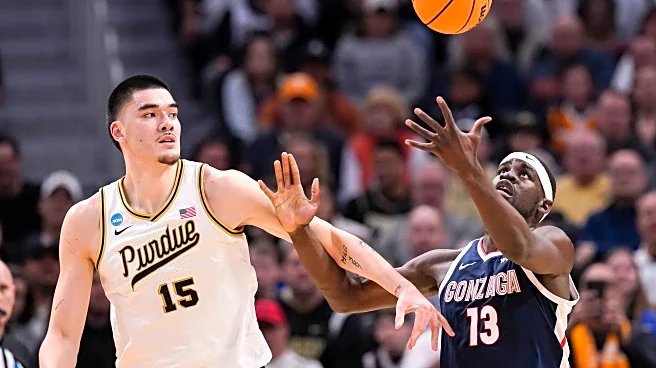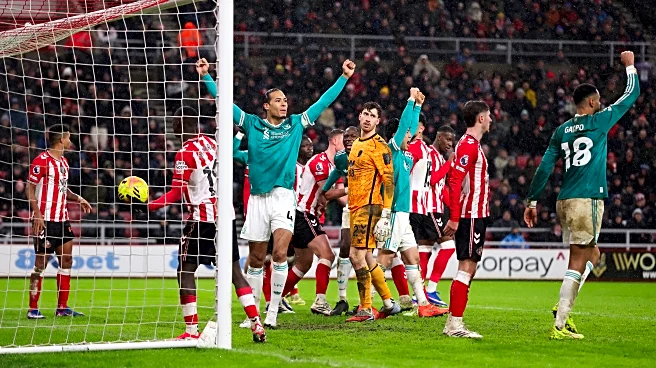What's Happening?
Nintendo has initiated a refresh of its Virtual Console trademark, a move that has sparked speculation among fans about the potential revival of the service. The Virtual Console was a popular platform
during the Wii, 3DS, and Wii U eras, allowing users to purchase digital versions of classic games from past consoles. This service was eventually replaced by Nintendo Classics, part of the Switch Online subscription, which offers a Netflix-style access to retro games. The trademark refresh could indicate a return to the Virtual Console model, although it may simply be a routine action to protect Nintendo's intellectual property. The company has previously renewed trademarks like 'Eternal Darkness' without any subsequent product releases.
Why It's Important?
The refresh of the Virtual Console trademark is significant as it highlights ongoing interest in retro gaming and the potential for Nintendo to revisit its previous digital distribution model. The Virtual Console allowed gamers to selectively purchase classic titles, a feature that many fans miss with the current subscription-based Nintendo Classics. A return to the Virtual Console could offer more flexibility and choice for consumers, potentially increasing engagement and revenue for Nintendo. However, the move could also be a strategic measure to maintain control over its brand assets, reflecting the company's broader approach to intellectual property management.
What's Next?
If Nintendo decides to revive the Virtual Console, it could lead to changes in how retro games are accessed and monetized. Fans and industry analysts will be watching closely for any announcements or updates from Nintendo regarding this trademark refresh. The company may face pressure from its community to provide more options for accessing classic games, which could influence future business strategies. Alternatively, if the refresh is purely administrative, Nintendo may continue focusing on expanding its current Nintendo Classics offerings.
Beyond the Headlines
The potential revival of the Virtual Console could have broader implications for digital game distribution and consumer choice in the gaming industry. It raises questions about the balance between subscription models and individual game purchases, and how companies can cater to diverse consumer preferences. Additionally, it underscores the importance of trademark management in protecting brand identity and market position.











